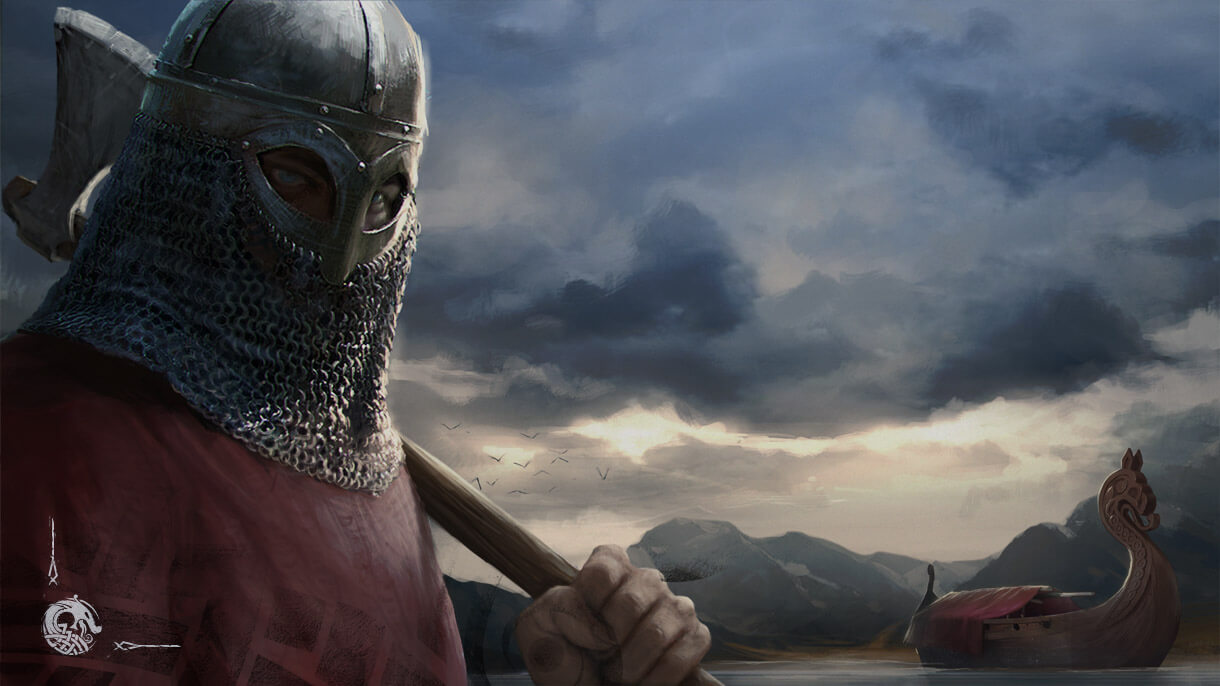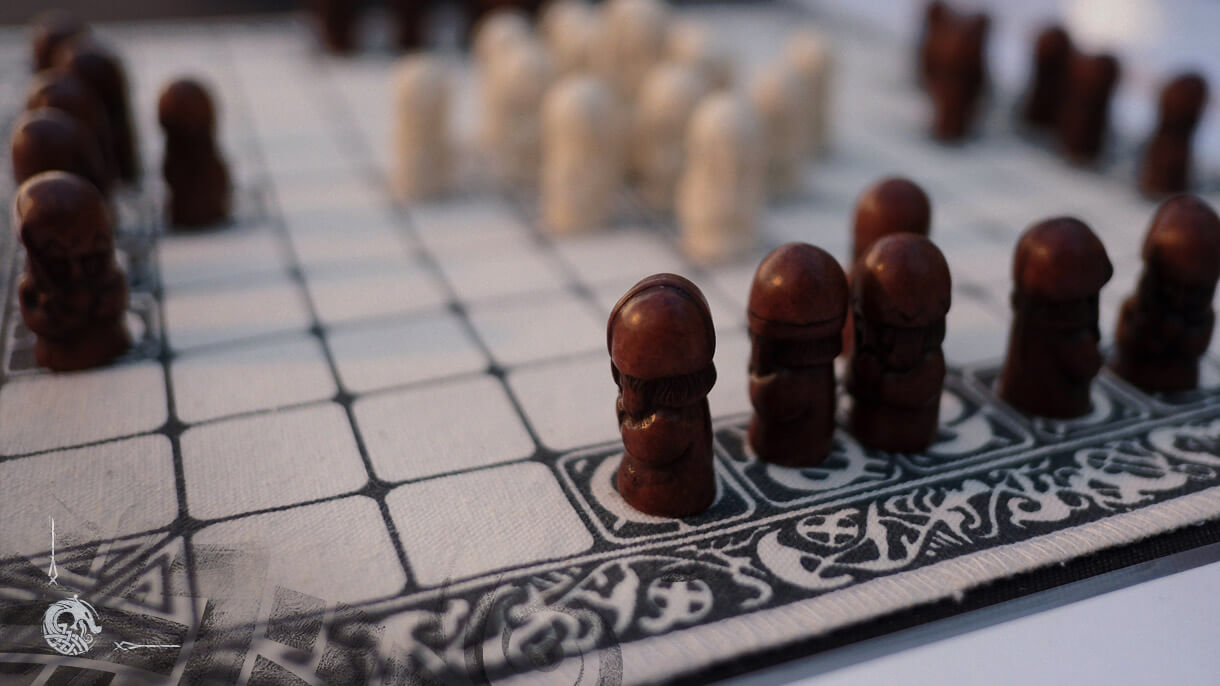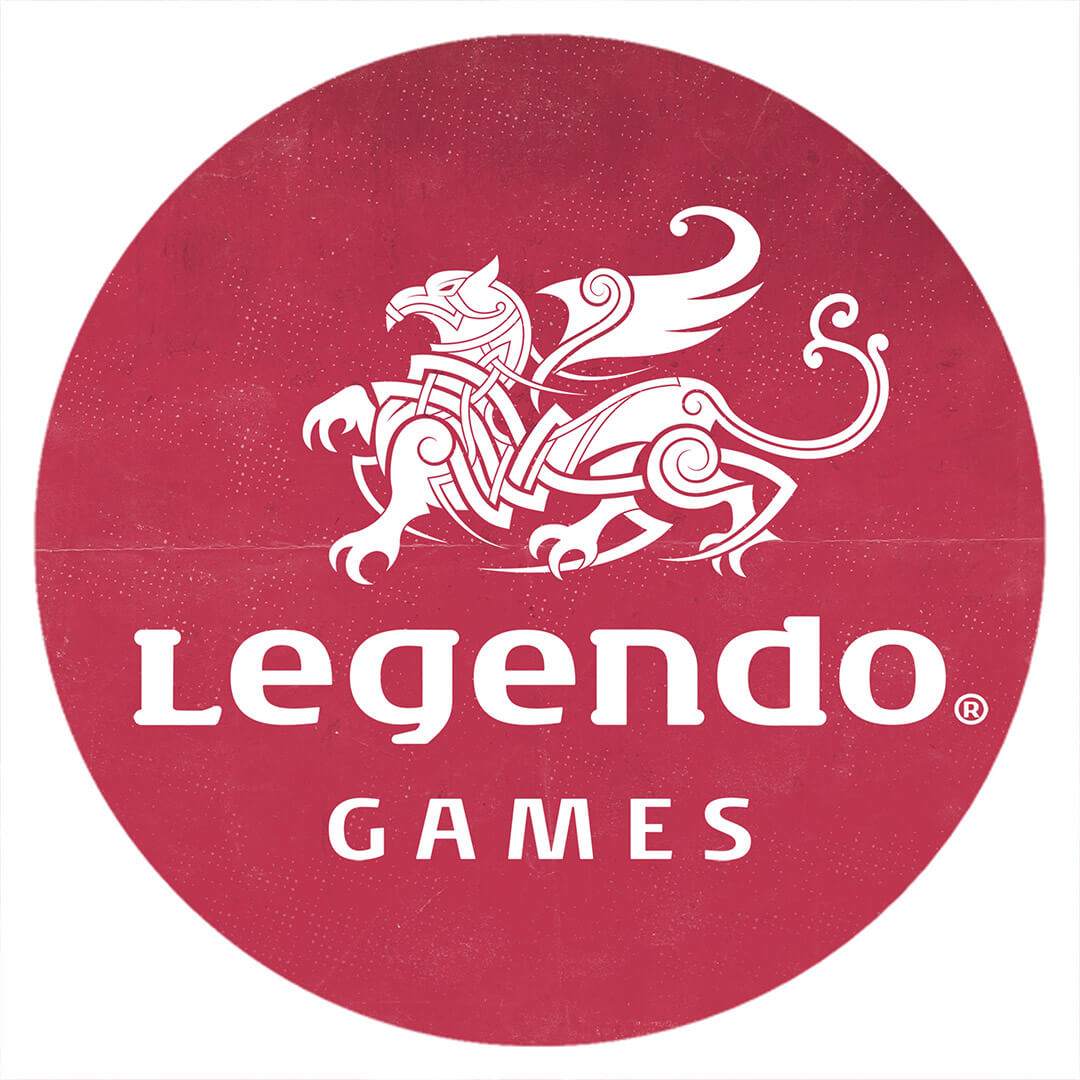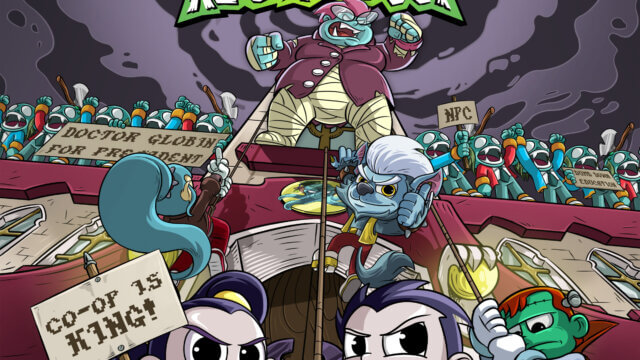
Why Turn-Based Strategy Gameplay is the Heart of Interactive Entertainment
January 20, 2020 — Turn-based combat and strategic games are, arguably, at the core of gaming. From tabletop board games to JRPGs, turn-based gameplay has always been a defining aspect of video games. Whether you love it or hate it, there’s no denying the impact this type of gameplay has had — and will continue to have — on video games.
There’s a good reason our upcoming console game Serpents in the Mist is set in Viking Age. Although primitive, real-life tabletop strategy games might not have started in the Viking era, the Vikings significantly expanded on them, most notably with their Tafl games.
Tafl games were a certain type of board game that originated from the early Germano-Gothic, Celtic, and Fenno-Scandinavian periods. Essentially, Tafl games consisted of two armies on a chequered or lattice board that would battle one another in a game that centered on turn-based strategy. In a way, you could say that these board games were the original chess.
One of the most significant turn-based strategy board games of the time was Hnefatafl, which was incredibly popular in medieval Scandinavia, often referred to now as “Viking Chess.” The game became popular during the Viking Age – a time full of conflict and strategic expansion – which is very much reflected in the game itself. Sadly, the rules of the game were never recorded, which has resulted in many different versions of the game that were altered over time.
Modern Hnefatafl has tried its very best to reconstruct the rules of the original board game and can be played physically or online. Both versions follow the same simple rules:
- The defending team has 12 soldiers and a king. The team’s goal is for the king to escape and reach one of the four corner squares.
- The attacking team has 24 soldiers divided up into groups of six around the edge of the board. Their goal is to stop the king from escaping by trapping opposing players.

Like chess, Hnefatafl was built around the king as the central figure; unlike chess, the other pieces are equal in rank, and movement is less restricted. Hnefatafl is one of the oldest games in the world and is still being enjoyed by many today. The rich history of turn-based strategy shows just how important it is for gaming today. Serpents in the Mist is one example of bringing the Viking’s influence on turn-based strategy games into the modern era. In addition, our game is historically researched, and consequently, it informs players of the history of the Vikings (and the Varangians) while encouraging navigation, exploration, trading, and raiding in many of the famous locations described in the Old Norse literature such as the Icelandic sagas, and perhaps more importantly, from the Gutasaga (The Saga of the Goths, also written in Old Norse) which speaks of a whole new world in the East, where Varangians — not Vikings — raided, traded, colonized, and explored at least as far as the Caspian Sea and Bagdad. An interesting anecdote is that in medieval times, Hnefatafl was often played pitting Vikings against the people of Muscovy, which later became Moscow and Russia, thus recreating the Vikings’ attempts to expand their reach and seize control of important trading routes in the East.
So, what’s so great about modern turn-based strategy games?
- First of all, they’re perfect for all consoles, whether handheld ones or home consoles. You can settle in for longer sessions at home when you want, but also take it on the go and squeeze in a turn here and there to help keep your day interesting.
- Another often overlooked upside of turn-based games is that they tend to allow players to fully experience and appreciate a game’s art style. The time it takes between turns allows players to really take in the art and design developers put into the game.
- Keeping that brain sharp. Some games can leave you feeling slightly lost and confused after a while. We all know that foggy feeling that comes from mashing buttons for hours and not using our brains to their full potential. Turn-based strategy games, on the other hand, are a completely different story. In fact, they, and Hnefatafl in particular, were designed to stimulate tactical thinking and planning skills that could be used in real life.
- Whether grid-based, tabletop, RPG, or turn-based, these games will always get your brain working; you have no choice but to put more thought into each action.
Most of us won’t be planning wars nor raids anytime soon, though the modern turn-based strategy game still encourages that same tactical thinking and planning. As soon as you enter a battle in one of these games and the music starts up, you begin sizing up your enemy and planning out your fight. Like with a game of Hnefatafl, you start thinking about all the different strategic components, things like enemy weaknesses, what you can do differently after a failure, how to use your resources effectively, and so on.
Games like Final Fantasy, Fire Emblem, Advance Wars, the upcoming Gears Tactics, and even Wargroove have all redefined the turn-based genre in one way or another, but we have the Vikings and their Tafl games to thank for starting to improve turn-based games over 1000 years ago. Without the Vikings and their highly original and turn-based board games, we might not have the vast selection of sprawling computer and console strategy games that can help push our brains to their very limits.
While playing Serpents in the Mist might not turn you into a real-life Viking warrior, keep in mind you’re tapping into an ancient tradition of sitting down for a deep and immersive turn-based game that’s so much more than just a fun diversion.






